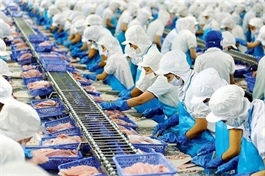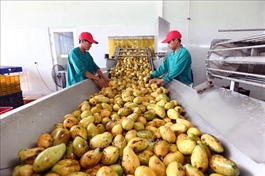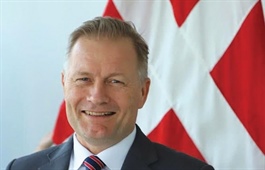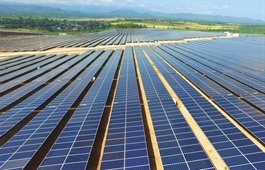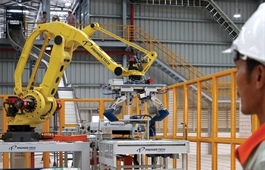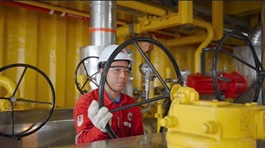Cooperation on hand for cooling plan
Cooperation on hand for cooling plan
Despite being backed by international support, implementation of a cooling action plan will require more support from banks and businesses, especially in the technical and appraisal realm.
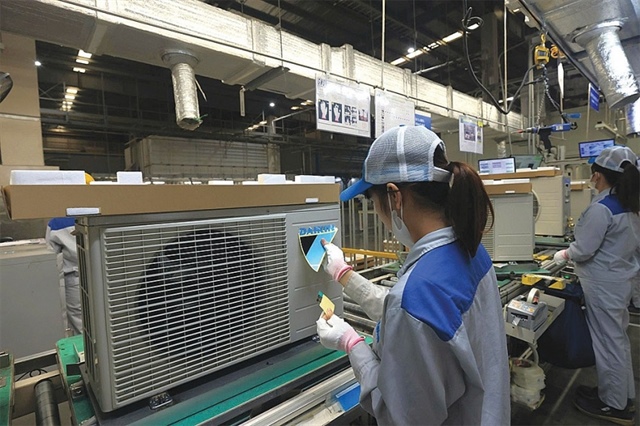
Effective collaboration will accelerate the completion of the nation’s official cooling plan, Photo: Duc Thanh |
At a late-June meeting in Hanoi on a consultation session as part of technical support for developing the draft National Cooling Action Plan (NCAP) for Vietnam, a representative from Agribank said that it is now difficult for the draft to be materialised due to a series of obstructions, especially when it comes to technical and appraisal issues.
“Many banks in Vietnam have arranged green finance or sustainable finance frameworks, with specific criteria for granting green credit. For instance, cooling schemes could qualify as projects promoting energy efficiency or reducing greenhouse gas (GHG) emissions. However, the challenge is evaluating whether a project meets the criteria for funding,” said the Agribank representative.
The NCAP aims to provide a comprehensive roadmap for Vietnam’s transition to sustainable and climate-resilient cooling systems while improving the energy efficiency of active cooling technologies and strengthening refrigerant management. Its implementation roadmap aims to reduce hydrofluorocarbon consumption by 80 per cent by 2045. The plan also proposes widespread adoption of sustainable cooling solutions, encouraging passive cooling models and cooling-as-a-service.
The draft also specifies that active cooling solutions are projected to save 9.91 million MWh by 2030 and 69.37 million MWh by 2050, with residential and commercial air conditioning contributing 66 per cent and 56 per cent, respectively.
The June meeting was organised by Energy and Environment Consulting (VNEEC) in collaboration with the Department of Climate Change (DCC) under the Ministry of Agriculture and Environment and the Southeast Asia Energy Transition Partnership (ETP).
The Agribank representative added that the challenge arises from a shortage of human resources to carry out these assessments, as many projects in specialised fields require evaluation, but resources remain limited.
“Consulting agencies could create a handbook for the national cooling programme to assist businesses and banks in self-assessing project eligibility for funding,” the representative said. “Alternatively, the DCC, along with consultants, could pilot collaborations with banks, including Agribank, to leverage each party’s strengths in implementing the national cooling programme. For example, consultants have expertise and access to potential clients, while banks possess available green capital.”
Dang Hong Hanh, executive director of VNEEC, also underlined the need to boost the partnership between businesses, state management agencies and international organisations in this sector to leverage the advantages of each party, contributing to implementing the NCAP smoothly and effectively.
“For example, on behalf of the consulting firm, we can contribute technical knowledge for the state management during the process of building the policy. Besides that, we are willing to collaborate with businesses to provide technical support packages as well as technical and appraisal services to enhance the awareness of the business community and accompany them during the implementation process,” said Hanh.
In practice, the development of the draft NCAP has received support from the international community, such as ETP.
“The cooling sector plays a vital role in emission reduction. This requires the Vietnamese government to adopt a long-term vision. Our work involves designing technical assistance to create suitable solutions, mobilising experts from various sources, and connecting countries to build a vision for Vietnam to use energy more efficiently and sustainably,” said John Robert Cotton, senior programme manager at the ETP.
In addition, it also contributes technical recommendations, scenario analyses, and stakeholder consultation processes to inform a robust, implementable national plan.
“Consulting opinions are to be a critical step in ensuring that the NCAP reflects the priorities, perspectives and technical insights of all relevant stakeholders, from ministries and industries to financial institutions and consumers. We hope this dialogue will further enrich the draft plan and support government efforts,” Cotton added.
The DCC supports proposals to establish partnerships to gather feedback for refining the draft and implementing projects effectively.
According to Nguyen Dang Thu Cuc, deputy head of the GHG Emission Reduction and Ozone Layer Protection Division under the DCC, cooling is no longer a standalone technical issue but an integral part of the national climate strategy.
“Developing the NCAP provides an opportunity for cross-sectoral and regional coordination, particularly encouraging active participation from businesses and communities,” Cuc said.
During the programme’s development, Vietnam has received technical support from international organisations like the United Nations Economic and Social Commission for Asia-Pacific and the Cool Coalition from the UN Environment Programme, through initiatives on passive cooling, cold chains, green finance development, and technology transfer.
Effective collaboration among stakeholders will accelerate the completion of the NCAP, a pressing issue in the roadmap to achieve national emission reduction goals.
“In Vietnam, the cooling demand is rapidly increasing due to urbanisation, rising incomes, and increasingly frequent and intense heatwaves. The cooling sector significantly contributes to global electricity consumption, estimated at 20 per cent, and generates substantial GHG emissions,” said Hanh from VNEEC.
“It is estimated that the cooling sector will account for nearly 10 per cent of national GHG emissions by 2030 if no control measures are implemented,” she added.
- 13:00 17/07/2025







